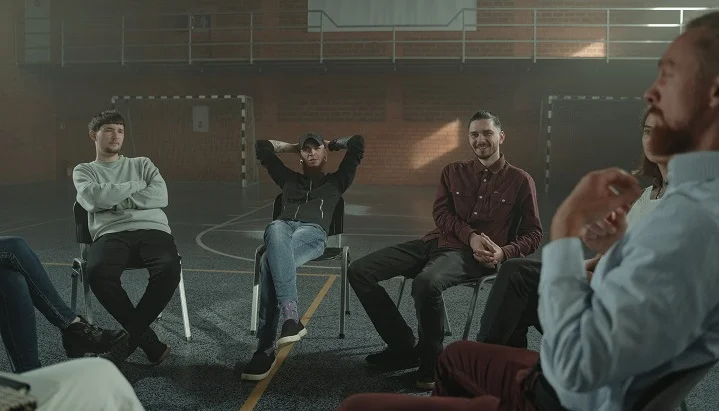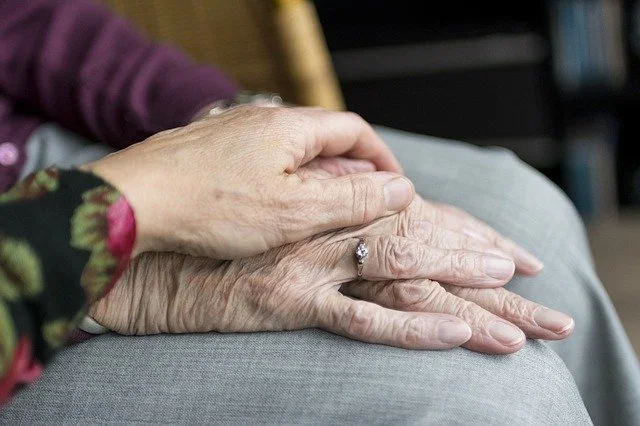Drug and Alcohol Rehab Kettering
Despite its stunning rural views, character, and well-documented history, the market town of Kettering has one of the highest crime rates in all of Northamptonshire.
It is well known that drug and alcohol abuse is linked with crime rates, meaning that drug and alcohol rehab in Kettering is important for a large variety of complex reasons.
You can read more about the disease of addiction here.
First among those reasons is the positive impact on you, as someone living with an addiction to either drugs or alcohol.
Drug and alcohol rehab in Kettering will help you to take control over your physical and mental health, will improve your finances as you spend less on your addiction, and will reduce the strain that your addiction has placed on your social relationships.
More broadly, a reduction in drug and alcohol abuse thanks to drug and alcohol rehab in Kettering moves crime away from the area as it reduces demand for drug trafficking and the transportation of illicit substances.
This has a wide range of knock-on effects, but overall a reduction in drug and alcohol-related crime makes Kettering a more attractive place to live.
All these factors add up, and drug and alcohol rehab in Kettering makes the area a better and safer place to live. Therefore, if you are addicted to drugs or alcohol, you should seek to understand how drug and alcohol rehab in Kettering works.
Start your recovery journey at a rheab in Kettering today by calling our expert team on 0800 088 66 86
Staging an intervention for drug and alcohol addiction in Kettering

Sometimes, someone who is addicted to drugs or alcohol might be completely resistant to talking about their relationship with the substance, and any change to their behaviour and lifestyle.
This will include not wanting to consider using drug and alcohol rehab in Kettering and dismissing any concerns about their addictive behaviour and its consequences.
In this case, you, as a relative or close friend, will want to consider alternative options. One of these options is staging an intervention.
Staging an intervention involves a group of people close to the afflicted loved one sharing their feelings with them, in order to let them know how their addiction is impacting you and the group.
It also involves setting goals for your loved one – for example, they should reduce their alcohol intake by two units a week for the duration of a month.
Finally, after outlining the goals you believe your loved one should strive to achieve, as a group you should outline what will happen if the goal isn’t met. This might be less leniency with regard to their addictive behaviour or something more concrete like stopping any financial assistance.
The CRAFT approach to intervention

There is more than one approach to staging an intervention, and this means that the support group of family and friends can have the flexibility to see which approaches might work best for them.
One such approach is the ‘Community Reinforcement And Family Training’, otherwise known as the CRAFT approach to intervention.
The CRAFT approach is designed to emphasise the differences between making good decisions and making bad decisions.
This might seem simple, but it is grounded in a strong body of research and the core principles of psychology.
The CRAFT approach aims to reinforce behaviour that makes progress, through rewards like congratulations, celebrations, and more support. Conversely, CRAFT also involves allowing the impact of negative behaviour to play out on the addiction sufferer.
If they go on an extended drinking binge, the support group wouldn’t get involved and would simply allow their loved one to come to terms with the repercussions of that binge themselves.
This makes it clear that making good decisions has good outcomes, while bad choices lead to negative outcomes.
While the CRAFT approach is known to be successful, no intervention approach is bullet-proof, and the majority of interventions don’t succeed in making lasting changes on their own.
But you shouldn’t get downhearted if this applies to your intervention, as it might even make an addiction sufferer come to realise that they do suffer this affliction, and that’s progress. Further down the line, they might use what they have learned from your intervention to seek help from drug and alcohol rehab in Kettering.
To learn more about holding an intervention in order to convince a loved one to access addiction treatment services in Kettering, call us today on 0800 088 66 86
How do I know if I’m addicted to drugs or alcohol?

From an outsider’s perspective, it might seem overwhelmingly obvious that you are addicted to drugs or alcohol. Sometimes, it is easier to notice destructive behaviour from the outside.
Partly due to this, and partly due to the social impact of admitting that you are addicted to drugs or alcohol, many people live with addiction for weeks, months, or even years in a state of denial.
It can seem easier to brush the issue under the rug and ignore it than it can to confront the reality of the addiction and the damage that it is causing to you and those around you.
Thinking about this, and the short and long-term consequences of your addiction can be challenging and can cause many complicated emotions to come to the surface.
So, despite your behaviour, you might not have recognised that you are addicted to drugs or alcohol, because you have avoided thinking about it and having that conversation with yourself.
While it might seem like the easier option to simply ignore your addiction and label it as a problem for another time, the truth is that doing this will mean that you avoid seeking help in the form of drug and alcohol rehab in Kettering.
If you’re worried about your own addiction issues and believe you will benefit from drug and alcohol rehab in Kettering, give our team a call on 0800 088 66 86
How to determine whether you are addicted to drugs or alcohol: the CAGE questionnaire

Because it can be so hard for a person to acknowledge their own addiction, there are many useful resources which can prompt them to think about the issue and begin to recognise the scale of their problem.
One effective and accessible option is the CAGE questionnaire. The CAGE questionnaire can be found online, and it is short, simple, and quick, consisting of only six ‘yes’ or ‘no’ answer questions.
If you answer ‘yes’ to two or more of the questions, it is a strong indicator that you could be facing a substance addiction.
It is not a formal diagnosis, but it does provide a sense that there might be an issue with your relationship to substances that you haven’t fully realised.
The CAGE questionnaire was initially created as a tool to measure alcoholism but has since been changed to that it can also provide an indicator of drug addiction.
If the CAGE questionnaire states that you might be addicted to drugs or alcohol, it is definitely the right time to start thinking about your drug and alcohol use and begin considering the services for drug and alcohol rehab in Kettering.
What is rehab?

Drug and alcohol rehab in Kettering will typically focus on therapy and addiction counselling, aiming to get you through your addiction and prevent relapses, before moving on to aftercare once you leave the clinic.
Depending on what substance you were addicted to, you will undergo an alcohol or drug detox phase.
This will remove all traces of the addictive substance from your body.
Next, you will be assisted with professional medical support as you experience withdrawal symptoms, which can be a huge psychological and physical challenge.
Addiction is not considered a ‘choice’ or ‘moral failing’ on behalf of the addiction sufferer – so the focus of rehab is always on returning agency to the patient.
Therapy will then help you come to terms with your addiction, and you will focus on why the addiction formed and how you can change your behaviour to stop the same addiction, or a new addiction, forming again in the future.
Groups like SMART recovery, Narcotics Anonymous, and Alcoholics Anonymous will help you to stay motivated once you leave the doors of drug and alcohol rehab in Kettering.
To learn more about the wide selection of addiction treatments in Kettering, call us on 0800 088 66 86
Can I access addiction rehab in Kettering on the NHS

It is possible to receive drug and alcohol rehab in Kettering on the NHS. This is because rehab is primarily a medical service, and addiction is a mental health condition which comes with risks to your physical health.
NHS rehab treatment is also free, unlike drug and alcohol rehab in Kettering. Therefore, it might seem like the best option.
However, there are some downsides worth considering.
Funding for drug and alcohol rehab is ring-fenced and allocated to local councils. In lots of areas, you will have to make an application for funding, and see a committee to state your case. This can be a stressful experience for an addiction sufferer, and it comes with a significant chance of rejection.
Even if the application is successful, NHS-funded rehab treatment is slow to access. The wait can be up to six months, and for many people with an addiction, this is simply too long.
Private rehab in Kettering does come with a financial cost, but it doesn’t have the downsides of NHS rehab treatment, and you will receive quality care.
Should I go to inpatient or outpatient addiction treatment in Kettering?

Making the decision of whether or not you want to access inpatient drug and alcohol rehab in Kettering, or outpatient drug and rehab in Kettering can be difficult. Before looking at the differences between the two, it’s important to consider what factors might feed into your decision.
Firstly, due to the differences between inpatient and outpatient treatment, you will need to consider whether or not you have space in your life to take up to four weeks away from your responsibilities to work and your family and friends.
If you can find this space, inpatient treatment might be a great option for you, and it generally sees better outcomes than outpatient treatment, especially in preventing long-term relapse.
Meanwhile, an outpatient stay allows you to complete treatment with an increased degree of flexibility and can be a good option for milder addictions.
Medical factors should also be taken into account, and due to this, you will want to seek advice from a trained professional.
They can tell you which types of addiction come with dangerous and painful withdrawal symptoms, and with these addictions, an inpatient stay is recommended.
If your addiction has mainly psychological withdrawal symptoms, like cravings and a change in mood, you might be able to undergo outpatient treatment in Kettering successfully but it will depend on your circumstances.
Inpatient treatment for drug and alcohol addiction in Kettering

Inpatient drug and alcohol treatment in Kettering removes you from your home environment, acknowledging that the negative influences which exist there could derail your recovery journey.
Throughout the duration of your treatment, which is usually recommended to be four weeks, in residential rehab, the clinic will also act as your accommodation.
This removes you from your normal place of residence and lets you focus on your recovery without distraction.
There are several inpatient treatment options, and these include quasi-residential treatment (where you don’t stay in the clinic for accommodation, but somewhere else away from your normal place of residence), and luxury residential treatment, which is designed to make your stay as comfortable as possible.
Outpatient treatment for drug and alcohol addiction in Kettering

Outpatient drug and alcohol rehab in Kettering allows you to carry on conducting your usual daily life while you undergo treatment. Unlike in residential treatment, you can return home after your addiction treatment sessions or your therapy sessions, giving you greater control over the direction of your recovery.
This control can be a good thing with milder forms of addiction, and you have the benefit of support from family and friends. However outpatient treatment does not remove the dangers of negative social influences and triggers that might be in your home.
Successful outpatient treatment, therefore, requires a huge degree of self-discipline to be successful.
If you are considering accessing outpatient addiction treatment in Kettering rather than inpatient treatment, bear in mind that outpatient treatment is a flexible alternative.
However, as an addiction sufferer, that flexibility comes with downsides as well as benefits, and it is recommended that you speak with a professional about your circumstances to see if outpatient therapy might suit you and your needs.
For help choosing between inpatient and outpatient rehab in Kettering, call our expert team today on 0800 088 66 86
What is alcohol addiction?

Alcoholism is extremely damaging mentally and physically and is strongly linked with a range of dangerous health outcomes. These include damage to your liver and other organs and the development of mental conditions like depression and anxiety.
Alcoholism is defined as the presence of extreme cravings for alcohol when not drinking, coupled with withdrawal symptoms, and compulsive drinking to an excessive degree when you do come into contact with alcohol.
Fortunately, drug and alcohol rehab in Kettering can help you to overcome your addiction to alcohol, meaning that you can limit the impact of it on your health and well-being and move forward as a healthier and happier person.
Begin your alcohol rehabilitation in Kettering by calling our team on 0800 088 66 86
Alcohol addiction treatment in Kettering

The main cause for concern in relation to the treatment of alcohol addiction is the onset of the potentially fatal delirium tremens. Delirium tremens develop as a result of seizures, which are one of the withdrawal symptoms of alcohol.
To mitigate this, the treatment for your alcohol addiction at drug and alcohol rehab in Kettering will provide you with a Librium-based alcohol detox. This is a ten-day detox programme using the prescription drug Libriumwhich is designed to remove the alcohol from your system without the risk of delirium tremens.
Other alcohol withdrawal symptoms include nausea, shakes, physical discomfort, and bouts of depression, but the experienced rehab team will be on hand to help you manage these as best you can.
After the detox, therapy is the next phase of the treatment, as is equally important. The therapy is designed to ensure that after your treatment has ended, you won’t relapse back into alcohol abuse and misuse.
It will identify the triggers of your alcohol abuse, and assess how you can avoid these in the future and manage them with better strategies.
Cocaine rehab in Kettering

Cocaine and crack cocaine are highly addictive and are linked to a long list of negative impacts on your mental health. However, it isn’t physically addictive, so while treatment for the addiction at a drug and alcohol rehab in Kettering is very important, it doesn’t have to involve a cocaine detox.
You might still experience withdrawal symptoms, like restlessness and irritability, but you can move straight onto the therapy phase.
Like with alcohol, you explore your relationship with cocaine addiction and its underlying causes, in the hope that you will be able to manage yourself more effectively in the future to avoid the drug and other addictions.
Heroin rehab in Kettering

Heroin misuse can be fatal. Accidental overdoses from heroin are one of the major risk factors associated with heroin addiction. In order to protect your life, it is essential that you seek out drug and alcohol rehab in Kettering for heroin addiction.
Heroin is both physically and psychologically addictive like alcohol. This means that a heroin detox phase is an essential component of treatment.
During this phase, you may experience physical and psychological withdrawal symptoms, which can be hard to manage.
These could include cravings, nausea, vomiting, and the onset of depression, but a professional team of trained staff will be there to help all through the way.
Various prescription drugs will likely be used to ensure that these withdrawal symptoms are kept to a minimum.
Therapy for heroin addiction is like therapy for other addictive substances.
It aims to help you to create healthier behavioural patterns through an examination of your history with heroin.
This will allow you to avoid heroin entirely, and manage any temptations which might occur on your journey to recovery.
Cannabis rehab in Kettering

Cannabis misuse is prevalent in the UK, meaning that the numbers of people who are addicted to cannabis are the highest of any illicit drug.
Cannabis has a huge impact on the academic and social development of young people especially, and it is highly associated with high dropout rates, depression, and social isolation.
Even in older people, the drug is linked with worse mental health outcomes, meaning that treatment for cannabis addiction at drug and alcohol rehab in Kettering is very important.
Cannabis is not physically addictive, meaning that it has mainly psychological withdrawal symptoms and requires no cannabis detox period.
The withdrawal symptoms can be minor or pronounced, and you will receive guidance and advice on how to manage them from the team at drug and alcohol rehab in Kettering.
Therapy will aim to help you break the cycle of addiction, as you identify key triggers which lead to your substance abuse.
Start your recovery journey today at a drug rehab centre in Kettering by calling our team on 0800 088 66 86
What are the different types of addiciton treatment services in Kettering?

Therapy should be a core part of your addiction recovery journey, alongside the physical impacts of addiction like detoxing. Drug and alcohol rehab in Kettering will ensure that you have access to therapy because without it treatment is less successful and is more likely to end in relapse.
Why is therapy so important to the programme for drug and alcohol rehab in Kettering? Therapy allows you to reflect on and examine your own past behaviours with the support of a highly trained professional.
Through this examination, you can begin to see patterns emerging, and learning from those patterns of behaviours can give you a newfound sense of control over your behaviour and actions in relation to addiction and your life more broadly.
One of the most well-known types of therapy which is used for the treatment of substance misuse and addiction is cognitive behavioural therapy.
CBT has been specifically designed to explore and deconstruct negative behavioural cycles. These negative behavioural cycles are what underpins addiction, through behaviours that we feel are out of our control.
Therefore, CBT is most likely to be your best option when it comes to therapy for drug and alcohol addiction.
However, every person is unique with their own background and circumstances, and sometimes CBT doesn’t work as well for someone as expected. In this instance the drug and alcohol rehab team in Kettering will explore other potential therapy options for you to consider.
Some of these alternative therapies to CBT are:
- Family therapy
- Dialectical behavioural therapy
- Holistic therapy (Art therapy, music therapy, mindfulness, meditation, yoga, acupuncture, nutritional counselling, etc.)
- Motivational interviewing
- Group therapy
- Individual therapy
You can discuss these therapies with the team at drug and alcohol rehab in Kettering in order to find what might work best for you.
What is dual diagnosis treatment?

It isn’t uncommon for there to be another mental health condition, undiagnosed, alongside your addiction. The aim of dual diagnosis treatment is to assess whether or not this is the case.
If it is, dual diagnosis will try to treat both mental health conditions and understand that they are likely to be connected in complex ways.
This is because alcohol and drug addiction treatment is not as successful if it ignores an undiagnosed, underlying mental health condition.
Without assessing and treating both conditions, treatment for addiction alone is not a complete form of therapy, and it will not have results that are as successful as dual diagnosis treatment.
Therefore, dual diagnosis treatment is an important measure, even if you don’t believe you had a second mental health condition that has gone undiagnosed.
To learn more about how rehab centres in Kettering will help support your mental health during addiction treatment, call us today on 0800 088 66 86
Relapse prevention after addiction treatment in Kettering

During your time in therapy, you will develop a relapse prevention plan, based on the identification of your triggers for addiction-affirming negative behaviour.
Experts have agreed that abstinence is far more effective than harm reduction or moderation management, which is why so much time is spent on relapse prevention.
But what is a relapse prevention plan?
Simply put, a relapse prevention plan sets you up with a framework for what to do when you come into contact with one of your triggers.
As the first port of call, it will aim to reduce any chances of you coming into contact with the trigger but sometimes this is unavoidable or very impractical.
So, when you do come into contact with the trigger, the relapse prevention plan will have outlined how you can cope with the trigger in a healthier way, rather than falling back to substance abuse.
Start your recovery journey today by calling our expert team on 0800 088 66 86
Rehab aftercare and support services in Kettering

Aftercare isn’t just an afterthought. It can be a central plank of your recovery journey, acting to support you as you learn from your mistakes and maintain motivation and drive.
First, you might wish to stay in contact with the rehab clinic and take part in things like long-term group therapy, or outpatient support services. You might also want to use self-administered drug detox kits which the rehab clinic can provide you with.
Next, you will want to think about getting involved with international and local support groups.
Narcotics Anonymous and Alcoholics Anonymous are both international groups with active local memberships who regularly meet up to discuss their recovery processes and support each other as they encounter challenges.
Both groups work from the 12-step principles and are internationally regarded for their commitment to improving support for recovering addicts.
SMART Recovery is an alternative to the groups, which is useful to bear in mind as it has a large and growing online presence.
This makes it more accessible and attractive to some people. The group has its own ideology and works to promote the concepts of rationality and self-forgiveness within the addiction recovery community.
How much does rehab in Kettering cost?

Rehab treatment is expensive, especially when you choose the recommended 28-day inpatient recovery plan.
This plan is the most effective at promoting long-term recovery and is generally a better option for addicts than outpatient treatment.
However, it also costs more.
The 28-day (or four-week) plan will cost a total of around £14,000, or £3,500 a week. Compared to luxury options this might seem like a cheaper option, as luxury rehab clinics can charge you up to £10,000 a week for their services.
Some cheaper options are available around the country, at the much lower £1000 a week.
Rehab is expensive, but so is addiction. Successful rehab can actually save you money in the long term, as well as protect your health and well-being for the future.
Begin your recovery journey at a drug and alcohol rehab in Kettering today – call our expert team on 0800 088 66 86
Get Help Today

Professionally supported drug and alcohol rehab is one of the best ways to recover from addiction.
If you are worried about substance use, either for yourself or for someone you love, it is better to get help sooner rather than later.
Call a member of our team today on 0800 088 66 86 for advice on the next steps you can take to beat addiction for good.
When you make the choice to reach out and get help for your addiction, you’re choosing to pursue a happier, healthier and longer life.
We offer connections to multiple rehab centres and rehab clinics in and near to Kettering, including in Leicester, Peterborough, Northampton, Rugby and many more.


